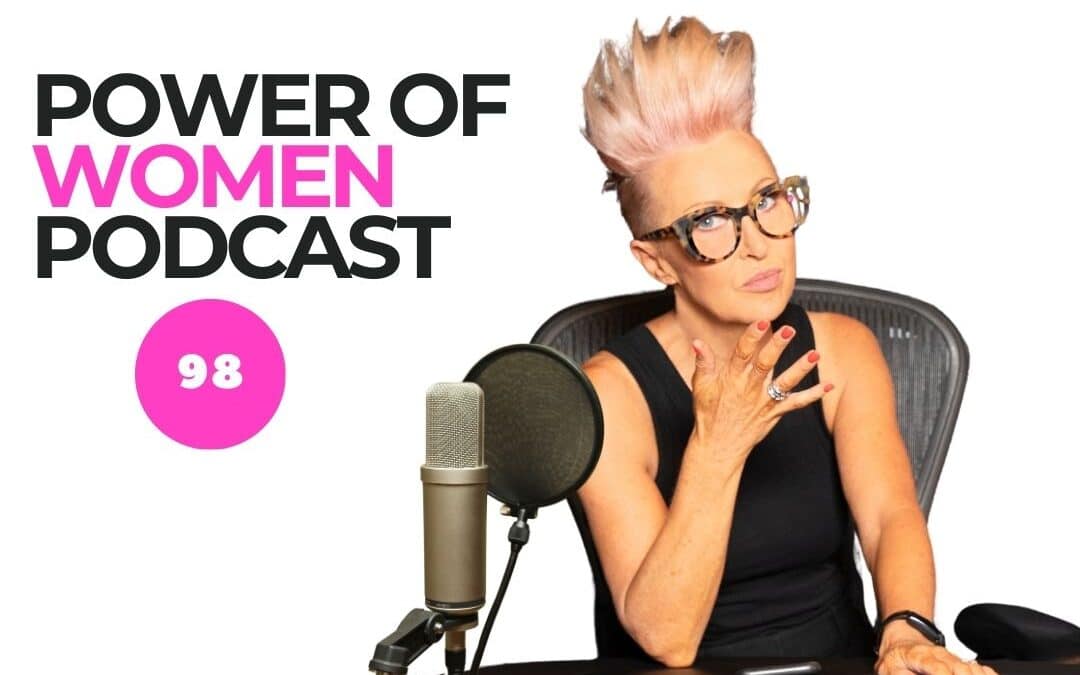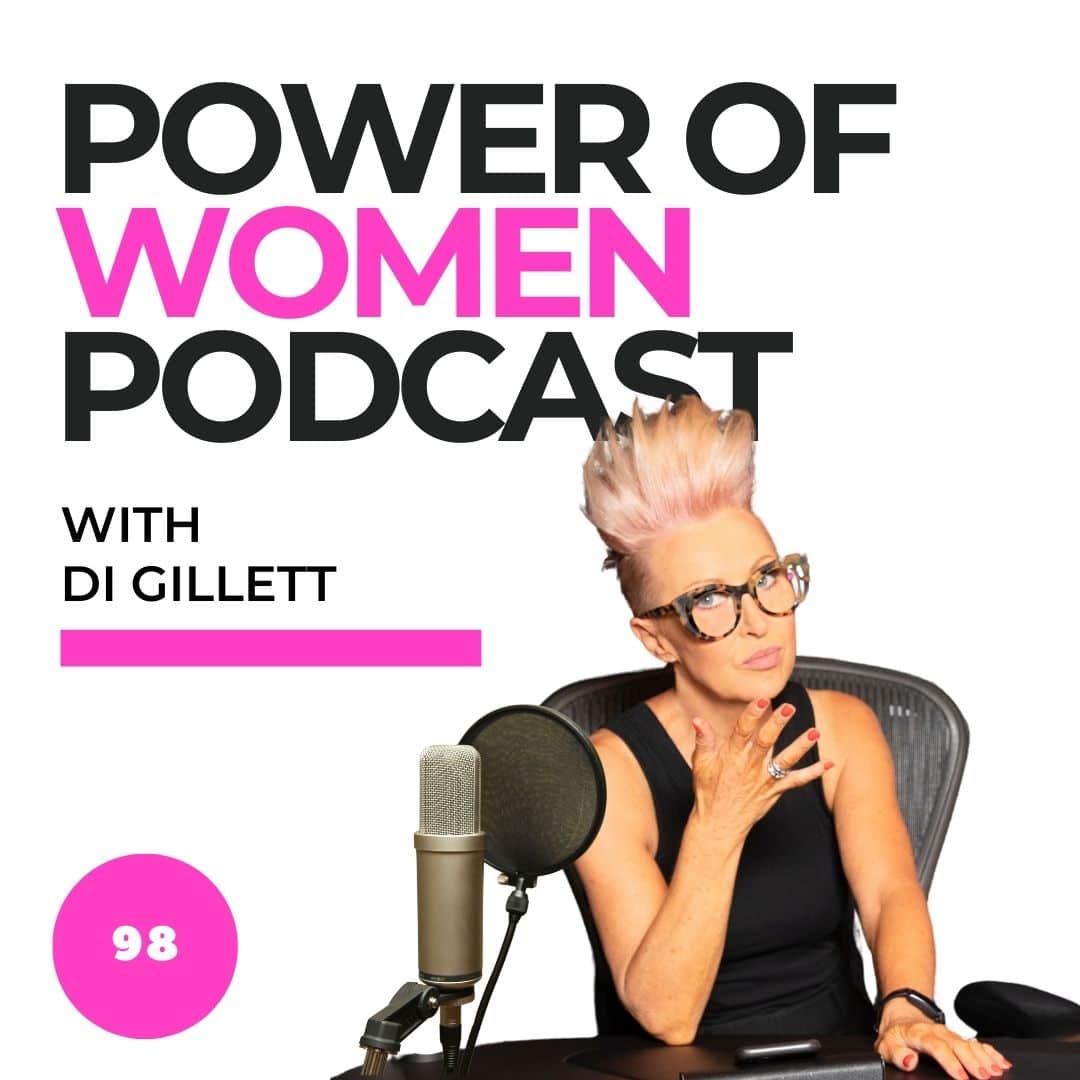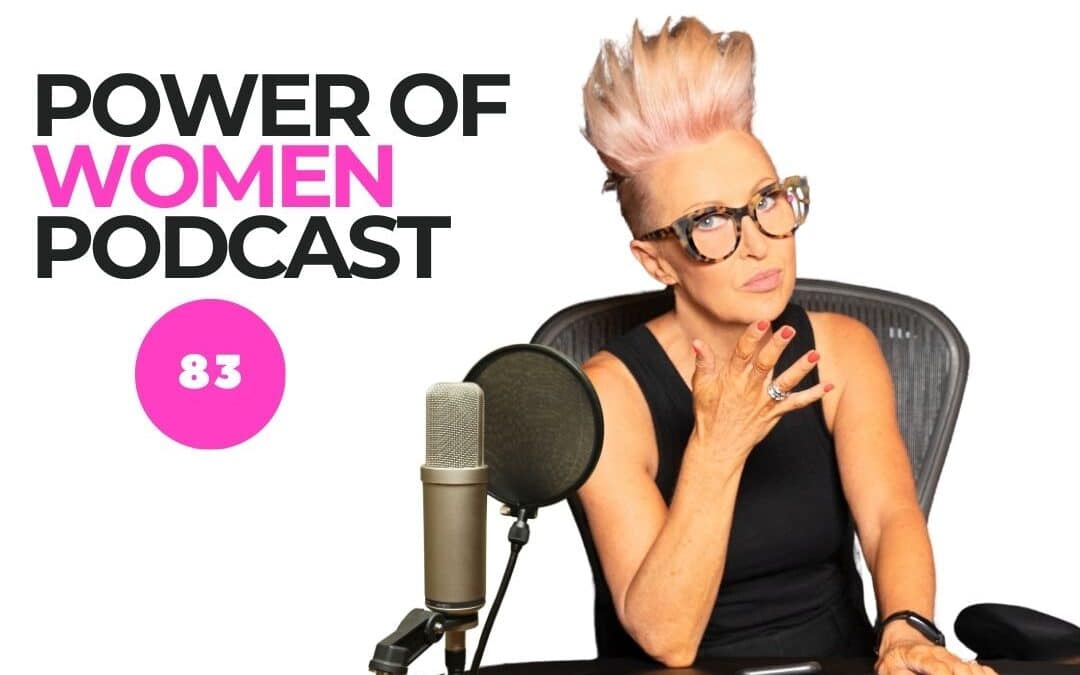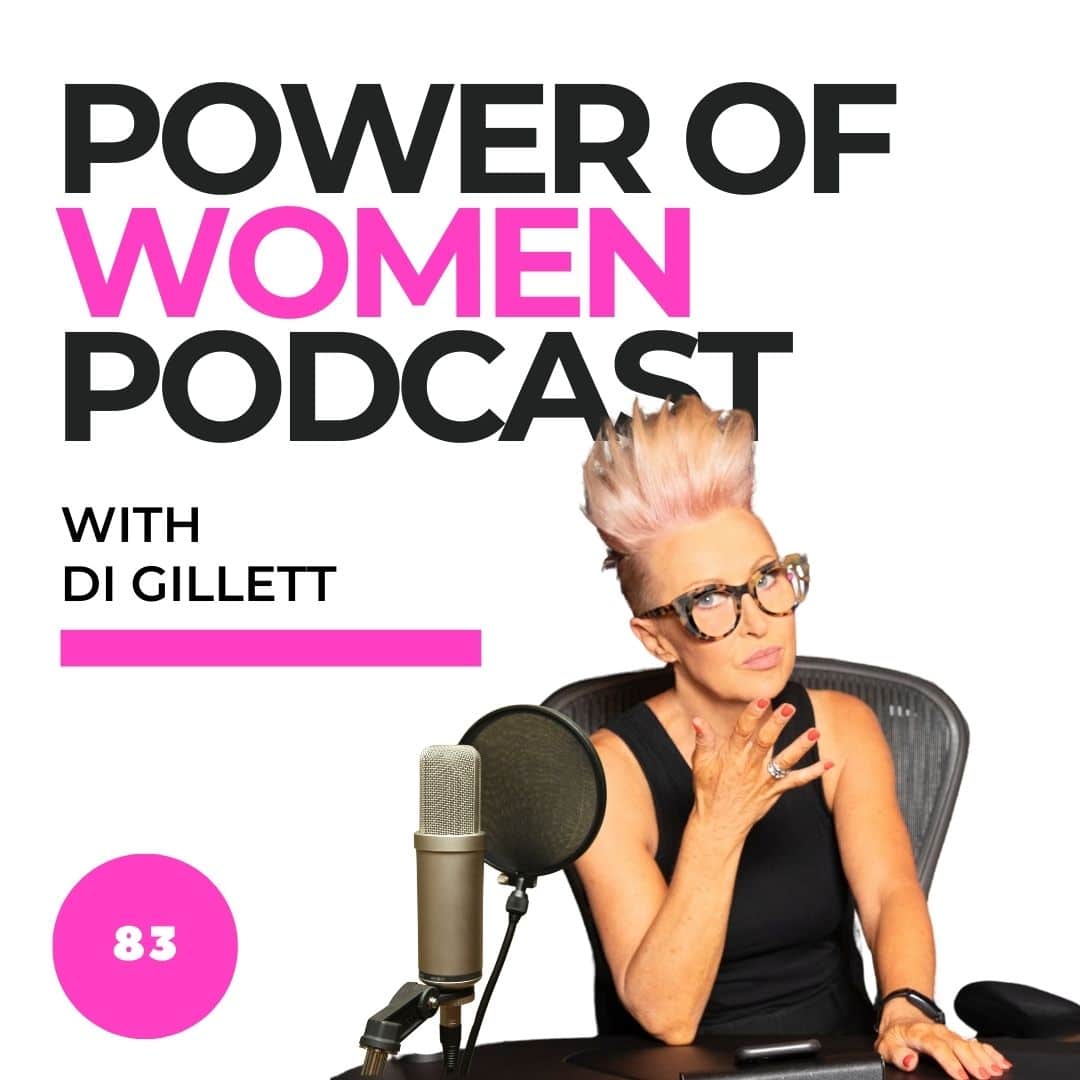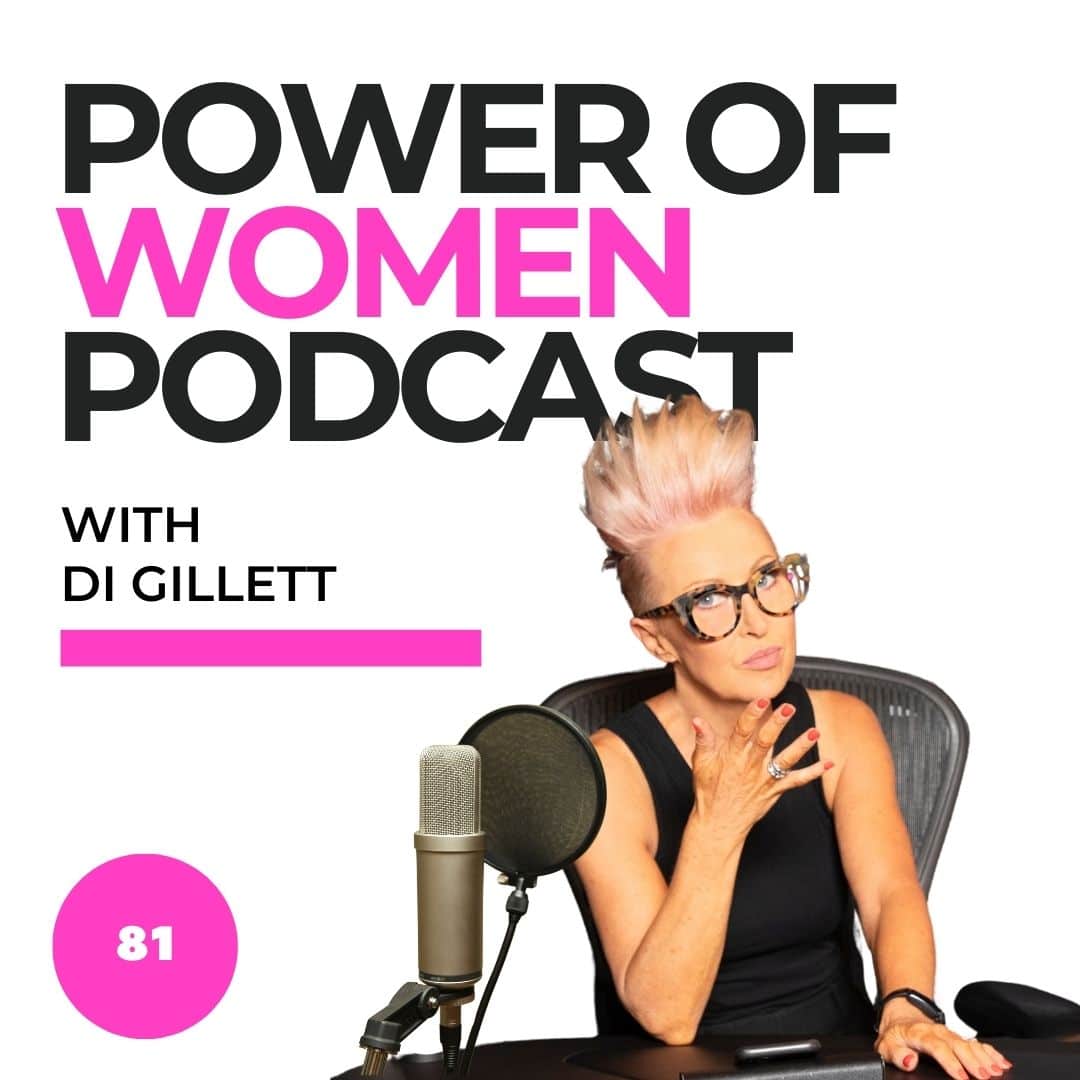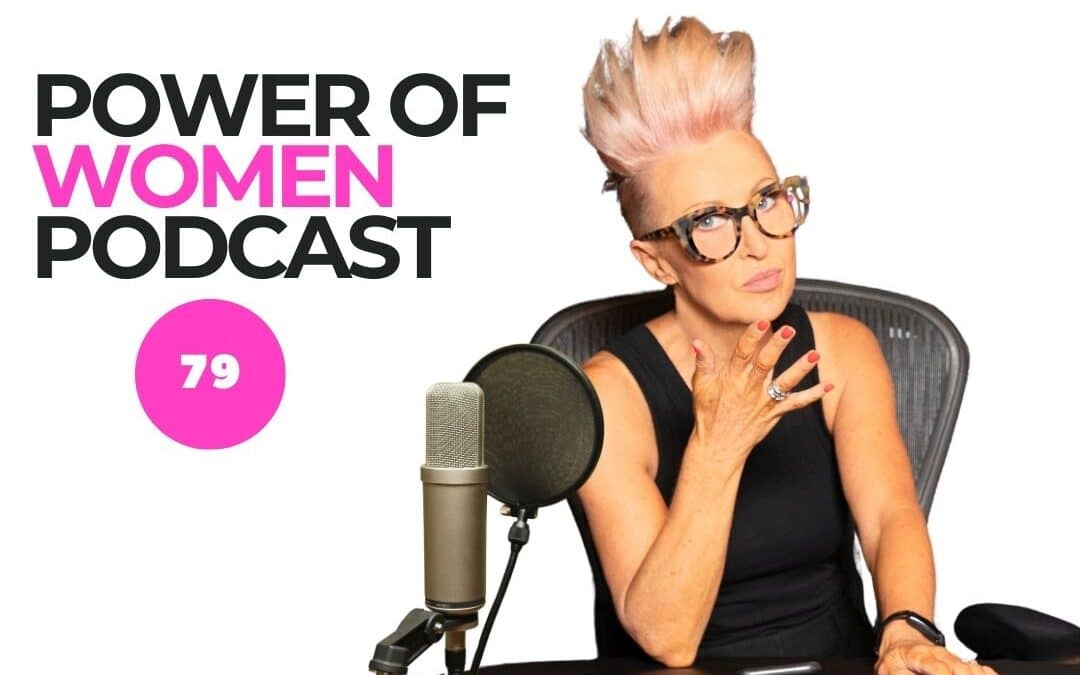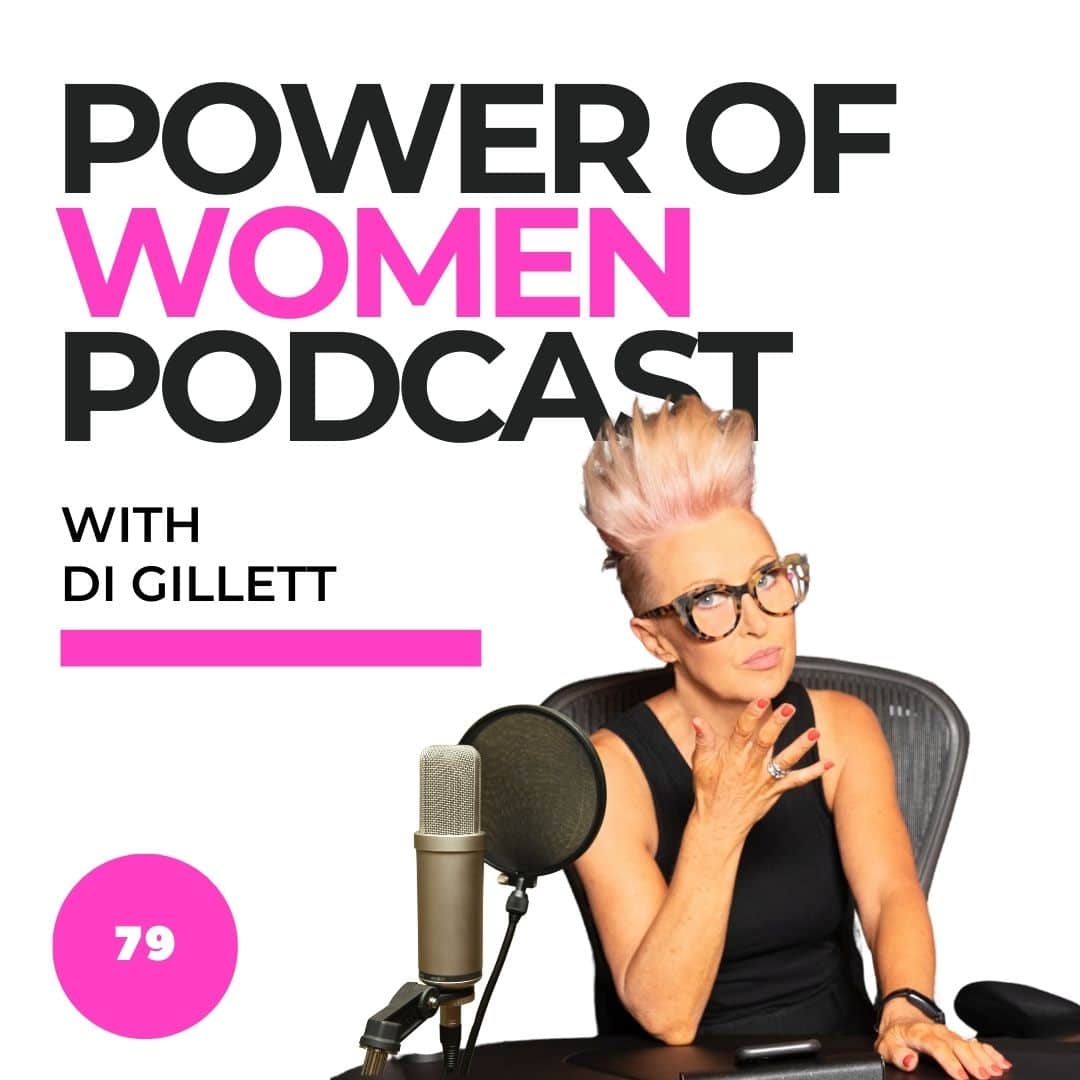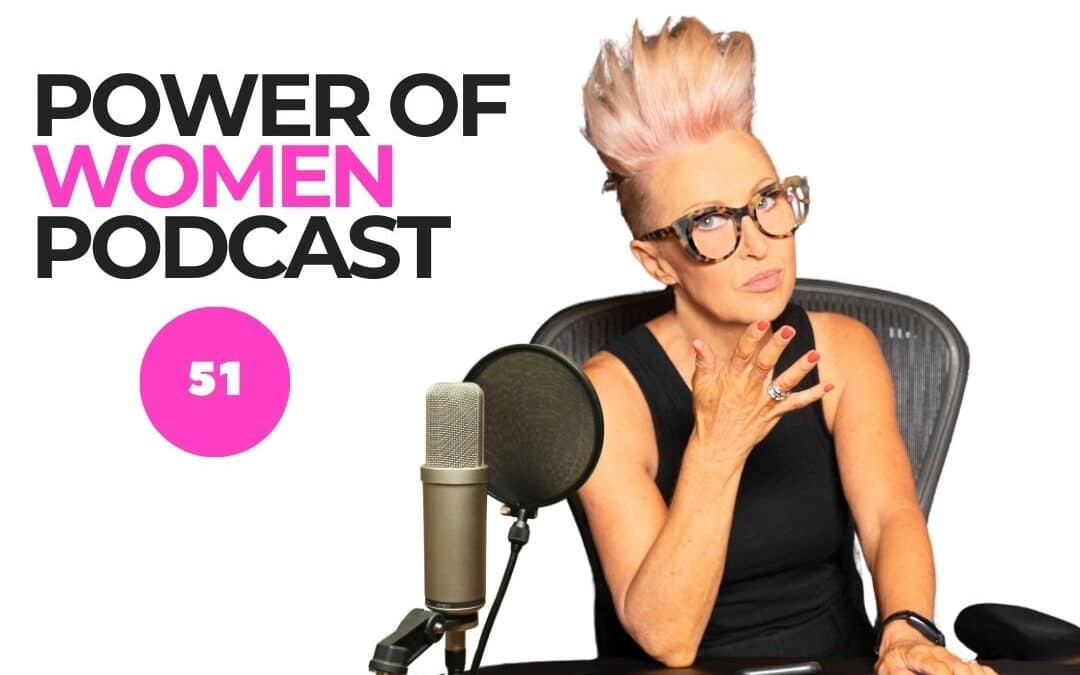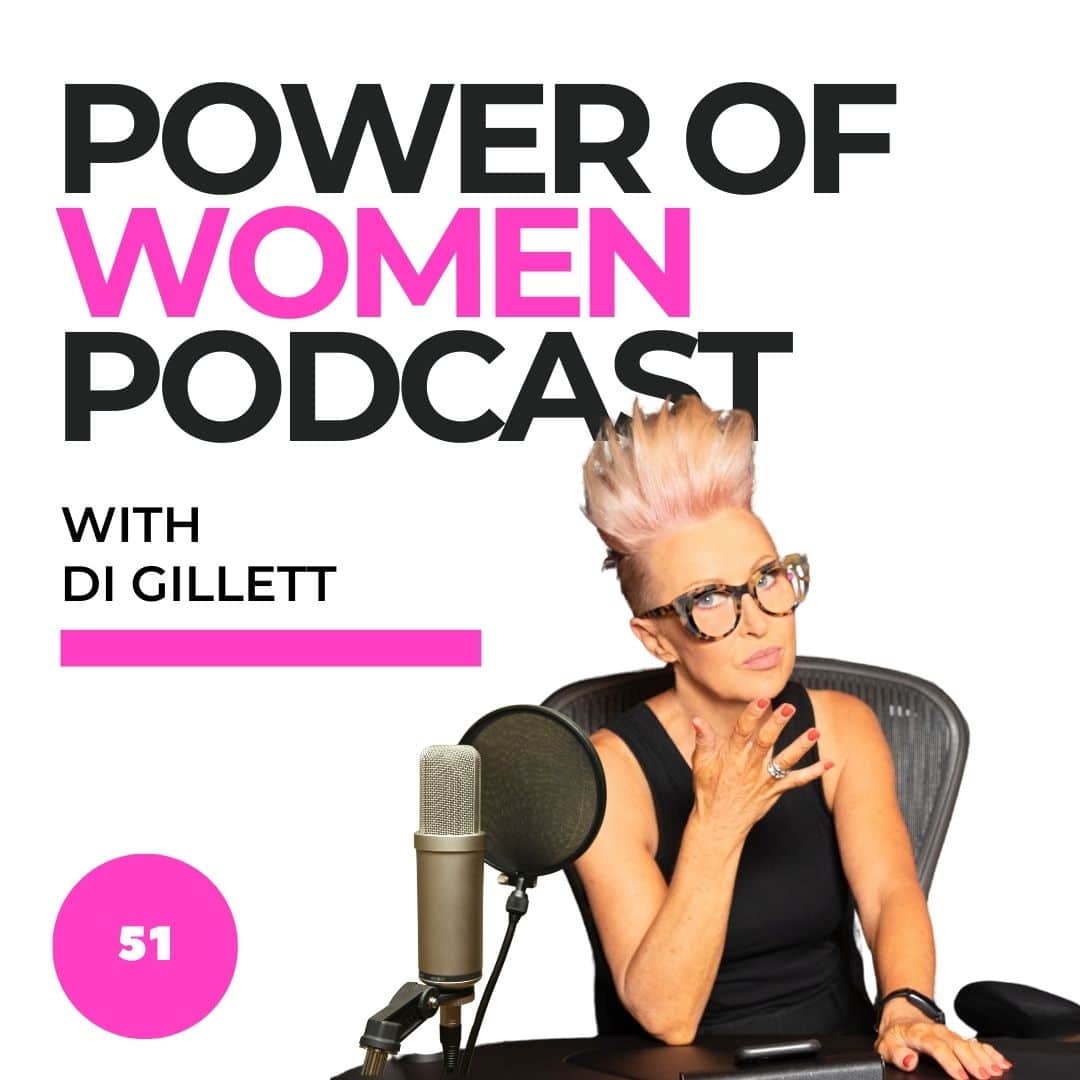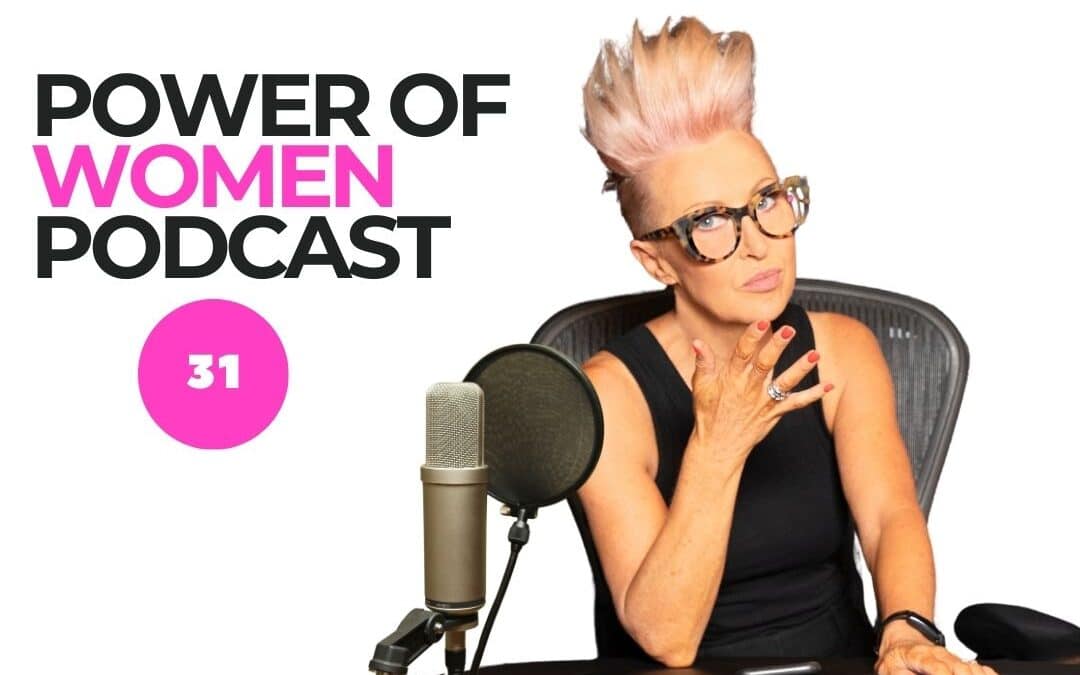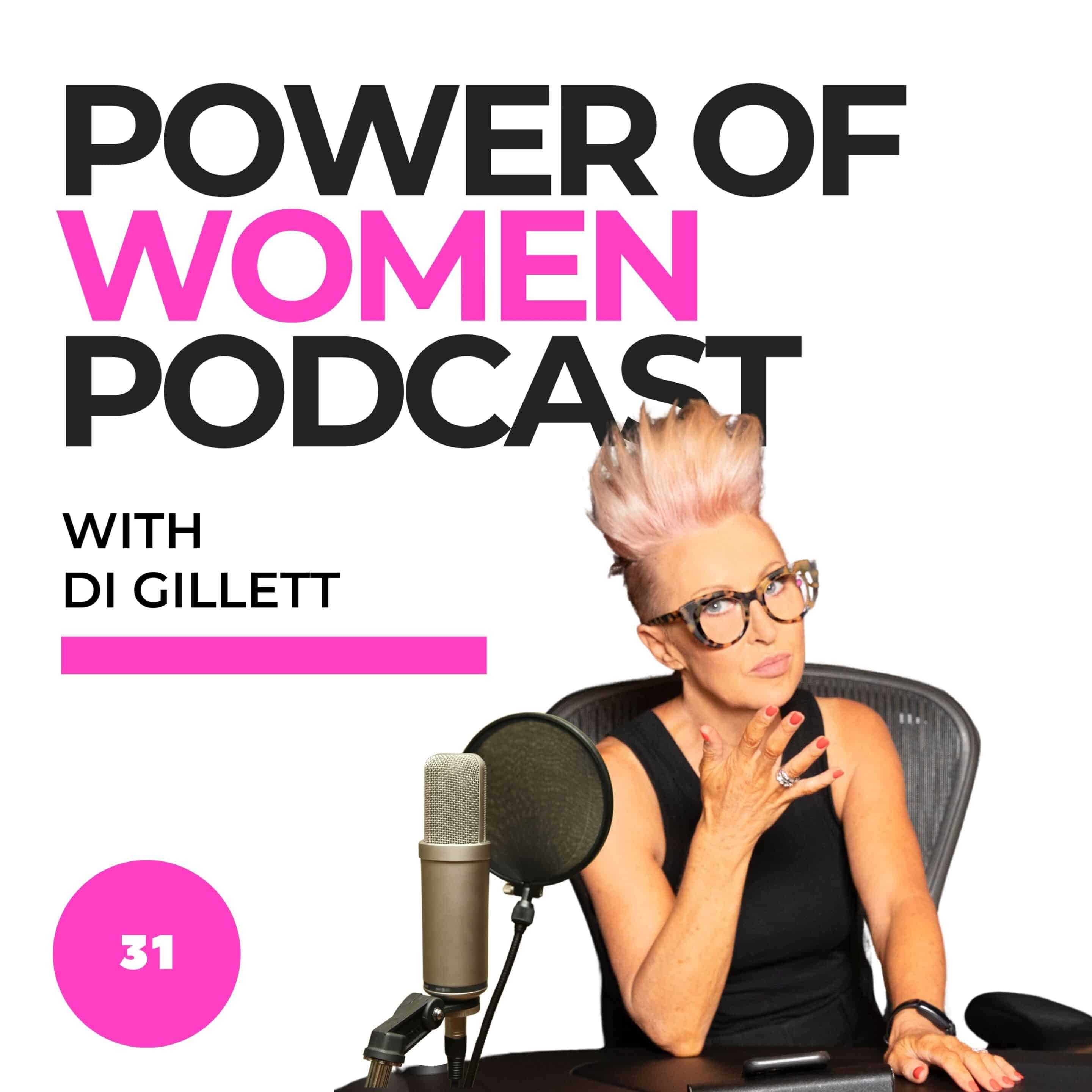FULL TRANSCRIPT:
HANA (00:00)
Hi, Hannah Asafiri. What am I defining in the three or four rapid fire points? The meaning for life, I think, maybe I’ll start there, for me is whatever setting in whatever capacity that you leave those circumstances in a somewhat better predicament than when you found them. And that is, I guess, my foundational value for life, whether I find myself
⁓ one-on-one with individuals in social settings, advocating and or speaking to politicians, parliamentarians or the king or queen. That ultimately what drives me and what gives my life meaning is that. And sadly, we’re living in a world where ⁓ those tensions are much more real and require in us to take greater risks and responsibilities in preserving the very values.
that can ensure a better kind of fairer world. ⁓ And as women, think, which is the other layer, ⁓ being mindful of the profound inequality and the spaces that women have to navigate, also with it comes the opportunity for us to rethink how ⁓ better outcomes are possible through women’s contribution. So in a sense, the hope
for me ⁓ is what defines me and that is that the world can be better, kinder, fairer, more humane.
DI (01:37)
I’m Di Gillett and welcome to the Power of Women podcast. We’re a platform that showcases and celebrates the strength, the resilience and achievements of women from all walks of life. But today we’re going to ask somewhat a deeper question. What does it mean to be free? And that is something that so many of us literally take for granted. Or is it something more
that we need to explore around that? Is it the power to build a sanctuary for others, even if you had to burn your own world down to escape? This is a story of a woman who was told to be silent, to make herself small and to fit into a world that had no room for her spirit. It’s the story of Hannah Asafiri. In Melbourne, Australia, that name is spoken with a reverence usually
save for community heroes and culinary legends. But before she was a celebrated activist and a radical entrepreneur, she was a girl trapped in a cage not of her own making. Today’s guest knows exactly what it takes to find freedom, not just for herself but for countless others. Hannah Asafiri, welcome to the Power of Women podcast.
HANA (02:59)
Dear Lord, thank you, Di, and thank you for that amazing introduction. Gosh, I think I can leave now and that kind of sums it up. I’ll just not disappoint going further, but yes.
DI (03:11)
Well, I think the introduction deserves a bit of a deep dive because there’s one hell of a story behind that. So, but before we begin, could I just want to say when we spoke off air and I said to you, do we need to do a trigger warning about anything that we are going to talk about today? I’m going to pause there because your response, I think, says it all. Because You said to me,
life doesn’t come with a trigger warning.
HANA (03:44)
And it doesn’t. And sadly, for many in the main, women and girls and children, and this is commonplace, that these conversations, ⁓ it is really sad. They don’t come with trigger warnings. and yet they are so pervasive. They’re a common experience for many of us. That said, it is important, I think, for people to know that there’s support, there’s help, that these are conversations that
⁓ don’t and are not afforded the appropriate spaces to talk about them, that we keep them hidden and we keep the responsibility and the onus on those who endure violence and abuse and trauma and leave them to their own devices or therapy or whatever it is. But as a society, we don’t talk about them effectively. And if and when we do, we
cotton wool them with trigger warnings and if you want to leave, leave the room. Well, life isn’t like that sadly. And that way of discussing these issues I don’t think is making inroads into changing attitudes and the very drivers of these attitudes. We need to be able to talk about them matter of fact. We need to be able to talk about them honestly and shift the shame, isolation, humiliation,
that those who endure ⁓ feel and place it where it belongs and it is with those who perpetrate these acts. ⁓ so, yes, I come back to, of course, life doesn’t give you trigger warnings, but also let’s ⁓ reimagine how we as those of us who’ve lived life ⁓ can respond and have this conversation and define how we talk about it.
DI (05:19)
mmm
Yeah, thank you. Could we start with your story and delve into some of that today, Hannah? What was it like growing up where tradition and culture often overshadowed your spirit?
HANA (05:54)
I wouldn’t necessarily say it’s tradition and culture. think often times spirited children find themselves restricted by the conventions and the environments that they find themselves in.
DI (06:12)
she’s got nothing to do with that. That could be any of us.
HANA (06:14)
That’s right. ⁓ I think, you know, importantly, especially if you’re a young girl and then growing up to be a woman in a society that’s got clearly defined roles and, you know, you’ve got your predictable pathway to how, what you should aspire to and ⁓ marriage and children and all of that sort of stuff. And I think anything that exists outside of that is quickly tamed.
and dissuaded, we’re often dissuaded from, you know, the hair being camped, just having an honest expression of who you are. ⁓ And yes, with that, obviously different cultures have their own traditions and rituals that further contain, absolutely. So for me, growing up in a culture,
DI (06:50)
I’m out of here Hannah.
HANA (07:09)
initially in Australia, but then we moved, my mother’s Lebanese, my father’s Moroccan, we then moved to Lebanon for a time and it was during wars and ⁓ really high-stakes settings, but the contrast between Australia and Lebanon in the gendered roles and the expectations of women and girls was for me really confronting. ⁓
necessarily restricting ⁓ more the hypocrisy of the expectations. it? ⁓ Probably neither. think I was curious about who makes the rules about these. It was absurd. I think more than, there was an absurdity about men and boys moving in public spaces only.
DI (07:43)
confusing.
or confronting.
HANA (08:03)
and women being relegated to the domesticity of kitchens and houses and salons and whatever. And whilst in and of itself maybe to a child that would have been okay, but where it wasn’t okay is I was then expected to move in men and boys spaces to go and bring the food from the grocery store, get the bread and yet denied everything that came with it and all the freedoms that came with it. And I think that
then became my training ground for really pushing back a little bit and really formulating my identity around questioning why things the way they are, who makes these rules, because they were absurd. just were nonsensical. So it was more that.
DI (08:52)
Yet you found yourself, as I understand it, in an arranged marriage despite the fact that you had this strong sense of what was fair for the guys and not fair for the girls.
HANA (09:06)
So yes, arranged marriages and I think this is where I guess when, so we moved from Lebanon back to Australia and ⁓ in that space ⁓ my mother did not integrate and certainly back then, I’m talking 40 years ago, 50 years ago even, the integration of communities and cultures was not as sophisticated as it is now and still now it’s quite inadequate.
But back then, it was worse. So mum lived inside the four walls of the home and became more and more depressed and more and more isolated, more and more, and her sense of marginalization and understanding of the world was limited to the four walls. And from that space, I go back to she did her best in her care.
⁓ Sadly, part of ⁓ her way of extending care ⁓ was to go back to what she knew, and that is to organise and arrange a marriage for her children. But again, later we can talk about that if or if not. ⁓ The conditions around which I was married were ⁓ very difficult. They were a consequence of sexual abuse.
And the only way in her isolation, my mother knew how to deal with the reputational damage, what that would mean for my other siblings in young girls being marriageable or otherwise. So like many cultures and traditions, sweeping under the carpet, getting rid of the problem, marry her off. And I think whilst
Now I understand and certainly forgive. It wasn’t okay for the little girl that was me and nor is it okay for many others. I also think where these circumstances were allowed to happen, I was married at 15 in Australia.
And Australia allowed it at the time, again, because we find ourselves wanting to be culturally sensitive, wanting to ⁓ embrace different cultures. But when that approach lacks a gendered understanding, we then default to going to the men, hey, what are your issues? How do you, what is it that you need to feel that you belong in Australia? And all these…
DI (11:38)
Hmm
become complicit as a country.
HANA (11:53)
And the people that are defining those cultures, of course they’re going to define them from their perspective and from their privileges. So as men who have been the ones that are consulted over the years, they have said, well, you know, our culture requires that we are allowed to marry our children young, provided there’s guardian consent, et cetera, et cetera.
Governments, whilst well-meaning, and societies, whilst their endeavor is to ⁓ be inclusive, I think those issues, unless they’re informed by the intersectional experience of women, and unless women contribute to what defines those cultures, then in the end they land on the bodies, sadly, of women and children who
deal with the impact and consequences of the layered, for lack of a better word, misogyny, the layered ⁓ societal issues that we have to navigate. And I think for me, I try to understand many years later my arranged marriage within that context, instead of just blaming my mother or the government for allowing it, or the Imam for marrying us, or whatever it is. ⁓
And I think it’s actually freeing when we can understand our place in the world and begin to agitate for change so that others don’t have to endure.
DI (13:31)
What happened between the relationship between you and your mother early on? it, was that a point of friction?
HANA (13:39)
Absolutely not. And you know, sadly, I loved my mother dearly and dearly. We’d never had a fight our entire life. And the level of empathy was probably too close even. ⁓ And we as children, probably like many children of migrants, we become the adults. We become the doctors, the interpreters, the translators.
DI (14:04)
All the things that care
HANA (14:05)
That’s
right. And because especially that they can’t move freely in society, we then take on that role. And in that role, you’re not allowed to be a kid. In fact, you can’t be a kid. with mum, interestingly, she now passed. But I’ve always had this thing that, you know, she did her best, she loved us, she, in her own understanding of the world.
and simultaneously holding the experience that it wasn’t good enough, that ⁓ as a young girl who was hurt and harmed by some of those decisions, and then how do we, if we arrive at that place, how do we forgive?
DI (14:52)
You’d built a strength of character though as a young girl in Lebanon being frustrated for want of any other word of seeing what was the gender difference of what the boys could do versus what you could do. How did you then bring that strength of character and perhaps view of injustice into an arranged marriage and actually
Were you again diminished or did you find your voice in the marriage early?
HANA (15:27)
Well, sadly, the marriage was profoundly violent from the very outset, in fact, from the wedding night. And I did write about it and was mindful in writing about it also not to associate arranged marriages with violent marriages. I think there is a distinct difference. Some arranged marriages can be good.
And some, obviously, marriages that aren’t arranged are also violent. So I don’t think the issue is arranged marriages per se. And yet this guy, I mean, there was absolutely nothing in common. We had no compatibility. was somebody who, you know, we started by saying, I ask why, why is the world the way it is? Why isn’t it better?
and his mode of, know, was about it’s my way or the highway. And I was never, for many reasons, I was never going to be the person that just thought, well, that’s okay, it’s your way. And I was young and I was 15, he was years older than me. So communication was just not at all. ⁓ And his mode of…
communicating and relating was extraordinarily violent at every turn.
DI (16:58)
And you would have had any life skills to deal with that at that age?
HANA (17:01)
None. And on top of it, you know, we’re Muslim, raised Muslim, and I think I was one of the first Muslim young women in Australia who was really pushing back and seeking a divorce. In fact, I called my mum the night of my wedding after the initial act of slap across the face and said, get me out of here. What is this? no, no, no, no, we can’t. And what will people say in that hole?
And you know, you then become exposed to culture again, this culture that’s defined by somebody obscure that says, you must remain, you must endure, you must persevere, you must not provoke, and all that sort of stuff. So, you know, I left him four or five times and …
In that and during that time and I think what’s been really good for me and What’s given me endurance, defiance, resistance, resilience, whatever it is, is the kind act of strangers, people you never expected. Like the woman at Sussan who I would come in every day once he would leave and go to work and
I would jump out the window, literally, I was young and agile, could jump out the window and headlock the doors and I’d go, yeah right, ⁓ and go up to the local Sussan store and every day would imagine a world and a possibility that wasn’t the horror that I was living. ⁓ And like most people I think who live through violence and trauma, we dissociate.
For me, dissociation was also a positive thing because it allowed me to imagine a world ⁓ that was possible. and in that world I kind of really cultivated an alternative to the horror. ⁓ And the random strangers who existed in that world, the woman at Sussan who every day knew I would come in, jump out the window, come in. ⁓
And she would know I would never buy something. I never had the money, never had the means. He never gave me any and didn’t work and, you know, I children. And she would say, hello, can I help you? Every day as though I was someone new. I didn’t annoy her, even though I said, can I try this on, can I try that on? And began to wear jeans that I wasn’t allowed to wear and tried all this stuff on every day. And she, you know, did not tire from.
going, hello, can I help you? And I think to women like that and individuals like that, you have no idea about the impact you will have on the trajectory of somebody’s life. Act of kindness, not from people that are expected to be kind, but from random, whether it’s your teacher who goes over and above, whether it’s a stranger who says, you okay?
DI (19:58)
Through an act of kindness.
HANA (20:12)
whether it’s, And they’re the ones that I think are profoundly important in and through the experience of those of us that have at times been isolated and been violent. Absolutely, an important one.
DI (20:24)
It’s a memory that you hold. Yeah.
Absolutely. Yeah. Okay. Well, coming up, we’re going to talk about more about how Hannah became a beacon of empowerment and social change.
If you’re loving the Power of Women podcasts, be sure to jump onto our YouTube channel and hit that subscribe button to ensure you never miss an episode.
So Hannah, leaving the marriage wasn’t easy, but what it did expose for you was that the system was really failing women. What did you find?
HANA (21:03)
Look, absolutely, and I think, I mean, I wish there were other alternatives for me at the time, and I look back at some of those experiences, and they are heartbreaking, that there aren’t any real and meaningful options for women to be safe and free of violence and trauma. ⁓
in leaving whilst it was very difficult and multi-layered, you know, from the control of violence within the home to then the societal control that says you can’t leave, you are defined by being a divorcee or in our culture you can’t, or in our faith it is not a possible option and all those things. And then the legal system who deems you fit or unfit.
to care for your children without recognising the life that you are enduring and experiencing through and with a violent partner without understanding the consequences of that. You are deemed based on having left a certain way or then you are defined and judged by those events. So I think the…
At every level, individually, at a societal level, at a cultural level, at a legal institutional level, women have failed repeatedly. And I think it’s understandable why women stay and why the revolving door scenario women return. With that said, it’s then no surprise. I then went on to work in women’s services and for 13 years my life was
and continues to be, but in that iteration committed to law reform, to changing some of the interventions, at least at a social level, to shifting and challenging some of the attitudes that enabled and allowed violence to endure. So I did everything from working in direct service, picking up the phone, speaking to a woman in crisis, to then
looking at effective models and responses to women who are escaping violence and abuse, to even sitting on government, national, state level on advisory boards talking about this issue. And thankfully, and still inadequately, but certainly thankfully, law reform and the recognition that this isn’t just a domestic.
At least those conversations have changed. We’ve still got a very long way to go. But we’re certainly not where we once were.
DI (23:54)
Did your mother get to live to see you do this work? ⁓
HANA (23:58)
Yes,
yes, yes, yes. My mother got to live not only to see me do this work and often, you know, working with other younger Muslim women in similar predicaments at times and really challenging and rewriting traditions and customs ⁓ and slowly also watching the transition and change of some of my mother’s attitudes over the years. And my father.
And then obviously opening the Moroccan soup bar and ⁓
DI (24:34)
come to that because I want to talk about that.
HANA (24:37)
In
the domestic violence sector and responses, guess for me, the lens and the experience has always been about those on the margins and those ⁓ who the system fails and continues to let down. And I think not through ⁓ ill intent at all, yet the system continued to let down. ⁓
because it’s established in a way that is a band aid to the problem. is not.
DI (25:08)
It’s not addressing the cause. ⁓
HANA (25:11)
And I think after 13 years, there was one incident where a woman phoned in with two children and we’d exhausted every option. And back then there’s only transitional housing and crisis housing and hotels and there was nothing available. And she said, I’m out on the street. I have two children. I need somewhere to go. And I couldn’t find anywhere. And we had nothing available to her. And I was told that I’m supposed to say.
there’s nothing available. Now for me that was personal. It was a profoundly personal, relatable story. ⁓ And that was the defining moment for where and how the Moroccan Super was established.
DI (25:54)
Ah. Well, we had on the podcast a few weeks ago the CEO of the Why Do We CA Australia, Michelle Phillips. Yes. And talking specifically about homelessness for women and that the cohort now that super surpassed the over 50s is now the 25 to 38 year olds through largely domestic violence.
And whilst we’re yet to know if anything will come of it, ⁓ from that podcast I had somebody reach out through the website only the other day asking could we connect them with the YWCA because they want to invest in women’s housing. hopefully that becomes a call to action and something that
HANA (26:47)
And I mean, just some basic re-imaginings. ⁓ Because at the moment, for all the measurable indicators, the indicators is that gender-based violence is going the wrong way.
DI (27:05)
Yeah, well we can see it in the statistics every day in the news. It’s tragic.
HANA (27:10)
And a lot of people say, yeah, it’s because women report more. No, that’s not true because the measurable indicators are sadly the brutal end to domestic violence, which is murder. Those numbers are going up and they’re not a perception. So if these are the indicators, then there’s something amiss in the way we are responding to the issue.
DI (27:38)
and to your point, band-aiding it rather than addressing it at the root cause.
HANA (27:42)
And I simply say some basic things and when we talk about the Moroccan Soup Bar, for 25 years we have unwittingly and organically evolved the model that women don’t return at all. Not one woman has gone back to a violent partner in 25 years at the Moroccan Soup Bar. Not because there’s something magic about us, not because we’re amazing, but because I think our response is needs driven.
DI (28:12)
Yep.
HANA (28:12)
⁓ It organically evolved around the enduring needs of women, not just the crisis itself, but the ongoing needs like housing, upskilling women.
DI (28:24)
So tell us, where did the soup bar start, the Moroccan soup bar? It is your baby.
HANA (28:27)
So,
that day that I had this woman who said, you know, I need somewhere to go and there was nowhere for her to go and to me I found that extraordinarily difficult to accept. There’s always an option and there should be. If there isn’t, there should be. ⁓ I would have taken her home, you know.
But obviously worker safety and wellbeing and you’re not allowed to and you have boundary issues if you did and whatever. There’s always a solution. has to be a solution. Anyway, so driving home in that state, there was a sign on the side of the road saying, Felice of a shopfront on St. George’s Road. I pulled over and phoned the agent and he happened to be in the area and showed me through this
space. ⁓ It was carpeted. It was absolutely nothing and it was a derelict kind of strip. There was no other retail. So it was a thoroughfare St. George’s Road. And there and then I found myself haggling and brokering a lease deal, not knowing what it would be other than it would be a space that is safe, run by women for women. ⁓
DI (29:50)
because there had to be a solution.
HANA (29:52)
Absolutely. And this is, I guess, probably an important aspect of who I am and how I’ve navigated my life. I think women’s intuition is undervalued, in fact, often judged. And our intuition, ⁓
DI (30:09)
could not agree more.
HANA (30:17)
you know, is being made to, ⁓ put that aside. It is about reason, it’s about a plan, it’s about ⁓ everything with an end game. so we prioritise reason and everything that is quantifiable over intuition. And for me, what’s held my entire life in good stead and what’s never harmed me.
DI (30:29)
not always
HANA (30:43)
society harms me, and individuals and cultures, ⁓ but your own intuition, if you allow it and get in touch with it as a barometer, will never put you in harm’s way. And I think women’s intuition, reinvesting in it and re-trusting it as women is probably one of the best things we can do for ourselves. ⁓ Now, the difference is, sadly, intuition doesn’t have a plan. It just says,
take that step. We don’t know what will happen, but trust and take that step. And from that step, wherever you are, intuitively, you will know where the next step is. And your life will organically and authentically unfold. The issue is you can’t then take that to a bank and say, fund this intuition, because I want to open up a place and I know it’ll work. And I did, in fact, go to the bank and they went, yeah, no.
DI (31:44)
Talked to nearly any trailblazer or entrepreneur, intuition will have been what drove them.
HANA (31:51)
Yes. ⁓ And I think intuition should be part of the story. I’m not saying it’s the only story, but certainly for me, in every major life-changing and defining moment, it has been intuitive. ⁓ You know, I believe in theories, energies, vibes, ⁓ as much as everything else that is tangible. ⁓
DI (32:18)
But you know how to tap into it. Not everybody does.
HANA (32:21)
I’ve had to. It is that space that’s kept me safe. ⁓
DI (32:27)
It’s been your imagination that would have emotionally kept you safe years ago.
HANA (32:33)
And I’ve learned, and in that sense, I’ve been really, really lucky that, you know, that the circumstances didn’t define me, but that I’ve found a way to navigate through, kind of just being in yourself and looking inward.
DI (32:49)
So how is the Moroccan Soup Kitchen supporting women and fulfilling the dream that you identified through intuition that day?
HANA (32:58)
Yes, so what I thought is it would be a place for women to be safe. And then the next layer of that is society often and certainly in our cultures, women are conditioned in kitchens often. ⁓ And they are rarely rewarded, remunerated or supported or valued for that work. It’s often work that’s exploited, that’s part of the expectation of what we do. ⁓
And then you look for a real job. And then I thought, what if we flip that on its head a little bit and we started where women are at, what they know how to do. And they know how to be in kitchens. Bring them in. Here’s a kitchen. And we know how to do hospitality and certainly in our culture. mean, we’re… So we thought women…
DI (33:43)
Morning kitchens.
HANA (33:49)
in a kitchen and we would offer up the, and I’m vegetarian, so we would make it the best possible vegetarian food ⁓ served up to Melbourne, cooked by these women. And for me it was also really important not to make the story about women, that women’s dignity was important, that the story is about this is a food place of Moroccan vegetarian food. Back of house it had a different story.
DI (34:15)
Yeah.
HANA (34:15)
because it’s not a charity. Women don’t need pity and charity. What they need is pathways and opportunities. ⁓ so at least I knew enough to separate the two. And front of house, this was for all intents and purposes, something that was grounded in our culture, that was being offered up to Melbourne as an alternative to vegetarianism, which at the time, you know,
DI (34:41)
Yeah.
There wasn’t much there.
HANA (34:46)
sauce and I valued
the integrity of flavors and had experimented over the years because I’m vegetarian, turfing the meat and chicken and putting potato and chickpeas. So I’d experimented for myself because I was familiar with a palate that is rich in flavor. And then, you know, the women came and ⁓
gave him a few recipes and said, is what we’re cooking and it’s vegetarian and it’ll be like this and we opened the Moroccan soup bar genuinely in good faith. 1998, pre-internet, pre-…
DI (35:21)
What year? wow.
Pre social media. Pre any of it. Yeah, wow.
HANA (35:31)
In the hope that, you know, and everybody at the time, absolutely every single living human being said to me, what are you doing? This is insane. What do you know about hospitality? And you’ve got a good job. You’re a coordinator of an organization. What? And I thought, no, something in me intuitively ⁓ thought not that
it would be and become what it has, but that I needed to do something that was different to the system that was a revolving door bandaid. How and what that looked like I didn’t know and trusted that it would be okay. Whatever it is, it’ll be okay.
DI (36:16)
What’s happening back at house?
HANA (36:18)
So Back of House, ⁓ women and to this day, I can tell you, we’ve never advertised for staff. And Back of House, is a space for women ⁓ to disrupt the cycle of violence initially, but then to look at and walk alongside them on whatever their journey is, whether it’s from basic language to up-skilling to developing.
you want to be a chef, want to whatever it is, you want to be a childcare worker, to walk alongside their journey, housing, childcare, and all those tangible things along the way became evident and we organically together reimagined solutions. So housing, coming back to your housing in the YWCA, women would say, okay,
DI (36:54)
This is
HANA (37:14)
I could never ring up an estate agent. I don’t have the references, don’t have the means to live alone and compete in private rental. Public and social housing needed five years to get into. So we would come together and I would say, listen, I’ll call and over the years we’ve got to know many real estate agents. Some of them are amazing. And what I would say is, I don’t want you to give her the house, but what I want you to do is I will guarantee
this application at least get a look in. And in their application often women will say, how about we live together? To other women. And how about I’ll look after your kids when you’re working, you look after my kids when I’m working. And that way they deal with the prohibitive childcare costs, ⁓ housing.
DI (37:46)
Yeah.
HANA (38:09)
They share the cost of housing and on top of it, the other layers of support, they validate one another’s experience. So they don’t end up going back. And I think they’ve been part of the success story of the Moroccan Super. And then on top of it, we identified. So that was the immediate need. And then we identified, okay, so what do you want to do if you want to springboard out of here to wherever else? And some would say, I want to do childcare. I want to do, ⁓
DI (38:23)
tested.
HANA (38:39)
advocacy, whatever it is, I want to be a patisserie chef. So we then formulated arrangements with Box Hill Institute and others to upskill these women. And the biggest problem sadly again is when people are not in touch with the lived experience.
They’ll say, there’s an option to upskill, get them to apply, here’s a course funded by government, la, la, la. Okay, but it competes with putting food on the table. If any woman is to take up that option, she has to take six weeks out of her income earning capacity to do that course to then be upskilled. And often, it’s not that women don’t want to. So I paid for their training as part of their time at the Moroccan Soup Bar.
DI (39:23)
prohibitive
HANA (39:30)
And often we would bring the training in and the hours are paid and there’s a ⁓ synergy between, I think, women, the courses that they are learning. And then they can see a vision and an outcome, an endpoint. It’s not just, here’s your accommodation to disrupt the crisis, now go fend for yourself, which is how sadly the system is made. And I think that’s been the successful
⁓ part of transitioning women and challenging quietly at times and at times more overtly some of the assumptions that are the very drivers of violence and gender-based violence, assumptions around female genital mutilation, for example, or assumptions around should women endure and stay and persevere in some circumstances or ⁓
you will have to defy your parents because, you know, we’re supposed to afford them respect, all those kind of things. When challenged from a place of knowledge ⁓ and when we can put aside superstition and culture and tradition, but come back to the very premise of what it is to be a decent human being, even a person of faith, then I think we can rewrite.
some of those outcomes and the Moroccan soup bar has been there for women back of house and the other thing that at the Moroccan soup bar not one woman has walked in the door knocked on the door and said I want a job and I’ve said no to and often we don’t need staff.
DI (41:13)
So have you been self-sustaining? Can I ask that? have. whole time.
HANA (41:16)
⁓
whole time. And I love that because it gives you the freedom to
DI (41:23)
You’re not beholden to anybody else’s.
HANA (41:25)
Nobody’s agenda, nobody’s criteria. It is simply the criteria of making the circumstances a little better for those we stumble across. And then obviously front of house, it grew into many over 26 years, many social causes became evident ⁓ and required us to take a stand like ⁓
DI (41:37)
It’s even more fantastic.
HANA (41:53)
our relationship to First Nations communities, how we can be allies, how we can take the responsibility beyond just acknowledgments, ⁓ to being effective allies in those conversations, the climate emergency, how we can reimagine plastic, polystyrene, all that sort of stuff.
DI (42:14)
So cultural limitations are irrelevant in any of this? Absolutely. You’ve diversified.
HANA (42:19)
Well, because I go back to, for me, kindness, compassion, justice, fairness, all those things, they’re a perspective. They’re not cause specific. And they can’t be just when it’s convenient, I’m only talking about this group. No. That no matter where they are and what you come across and you’re confronted by, that perspective is my responsibility to enact. So…
You know, same-sex marriage, all of those issues as they ⁓ became apparent over time and became social conversations, we took a stand on and our community, ⁓ and I often say I feel like a surrogate aunt.
DI (43:03)
I bet you do.
HANA (43:05)
community. And it’s not just North Victoria, we became a destination place, everybody came, it’s so humbling. ⁓ But with it, people, and I think it reaffirmed this idea that if you build it, they will come. Quirky as it may be, unconventional as it is, that it resonated with ⁓ the betterment of who we are. And a community was not only forgiving,
of, you know, at times some of the girls spilt tea on people. We’re not from hospitality. The food was great, always. ⁓ We never compromised on the standard. And yet people found themselves drawn to a place that was refuge to those values, I think. And no matter who you were, the richest
⁓ and or the most marginalised or homeless, you were afforded the same dignity and the place was yours. and I think that affirmation back from community, that kept us buoyed and it certainly allowed us to endure through COVID and… ⁓
DI (44:04)
Meh.
You’re
busier today with the activities that I will call back of house than front of house by contrast.
HANA (44:30)
So obviously I’ve written a book, in the book it’s also a deliberate contribution, I think, to bearing witness to our times in what I find that we are hostile to and repealing some of the gains that women have made over the years. ⁓
DI (44:32)
Yeah.
HANA (44:57)
That to me feels like it’s got a lot of momentum and pushback from the highest office of the land to some social media influencers or whoever it is. that conversation around putting women back in their place ⁓ should have remained in the history books. And yet, ⁓ we’re talking about abortion rights again, we’re revisiting ⁓ attitudes that I just find extraordinary.
And that gave me the impetus to write about, I mean, we call it a memoir. It is called The Audacity to be Free, but to reimagine freedom. And, you know, if I had to write my life story, I think it’ll be a thousand page and that’ll only be the beginning. But I did pick snippets of my life that spoke to these issues.
in the hope that they can resonate with and contribute to a conversation that we are having at the moment as a country on gender-based violence and how to engage all of society. Because this to me isn’t a women’s problem, nor is it a men’s problem. It’s our problem. And sad to say we all contribute.
to upholding attitudes through our silence and through what we say ⁓ that form part of the drivers. And the other thing I think is also important and ⁓ doesn’t really have a lot of space is that not all men are wholesale to blame for violence against women. And we unwittingly do this because we’ve left the field, we’ve gone
No, violence against women is a gendered problem. Yes, it is, but not all men are perpetrators of violence. all perpetrators are perpetrators and we need to really have better systems of accountability for that, absolutely. And at times even, dare I say, remove the man. Keep an eye on him, remove him, don’t disrupt her life and children anyway. Absolutely, and simple. And the other thing,
DI (47:15)
Wouldn’t that be novel?
HANA (47:21)
The men who are not perpetrators, they are our allies. Engage them in a way. Don’t, I mean, we’ve backed, sad to say, from what I’ve seen, men into a corner of not knowing how to be and what to do. And at times, equally, not all women are wholesale victims of violence, because even unwittingly, and at times overtly, but unwittingly, ⁓
DI (47:24)
Absolutely.
Yes, I couldn’t get him on
HANA (47:49)
You know, men like Trump were once boys in the home. Given legitimacy, What we ask our sons and daughters are different things. What we expect and allow for sons and daughters are different things. We are complicit also in
…the very attitudes that enable, because when boys grow up in households, and they’re not just the domain of women, both men and women, in what they witness, ⁓ and then it’s reinforced at a social setting, in schools, our boys will be boys, they play like… …and then it’s reinforced in politics, even in our political settings, that whole adversarial have-a-go toxic culture…
DI (48:25)
See it on the school bus.
I’m
that at the moment and it’s a reminder that it’s been going on for a long time.
HANA (48:47)
So let’s invite and engage ⁓ decent men in ⁓ being part of the solution, as well as, I think, women in all our roles and responsibilities, also reimagining and questioning some of the attitudes that we uphold. ⁓ which
you know, I think, are contributors, our attitudes towards men and women and boys and girls and non-binary people and prejudice and all of it. ⁓ These are the drivers. Yes, governments have a role and a responsibility and must address better institutions and systems and legal responses, ⁓ but it would be remiss of us not to look at the attitudinal drivers. ⁓
and engage men because I think we’ve left the void and that void has been filled by the Andrew Tates and others. The solution, the one thing I would say is at the moment we’re trying to second guess ourselves a little bit and kind of go, yeah, men need to be part of the solution, let them do the men’s shed and no. The solution has to be driven by women, supported by men.
DI (49:49)
That’s right.
HANA (50:09)
That is the only way those solutions are going to be effective. They need to be defined and driven by those who endure and experience the issue as allies with taking responsibility for the privileges they hold in society as our allies. So I think the solution to me is not impossible. In fact, it’s probable if we allow and make space for
⁓ a reimagining and that flagpole of a vision where society is freer for everybody to live with dignity and respect.
DI (50:49)
Thank you, Hannah. And if I wrap that up in a bow, The most salient point out of that, I think, to share and reinforce is the solution is created by women but supported by men. Absolutely. I think that’s it in an absolute nutshell. What an absolute pleasure and a privilege to speak with you today.
I will ensure that we add the details to the Moroccan Soup Kitchen in the show notes and a link to your book, The Audacity, to be free. And be sure to share this episode because this is a really important episode on so many levels. It touches on so many of societal challenges today and there won’t be anybody in your orbit that this isn’t relevant for, so please be sure to share it.
You can catch it on all of the ⁓ audio platforms and on YouTube. Until next time.
